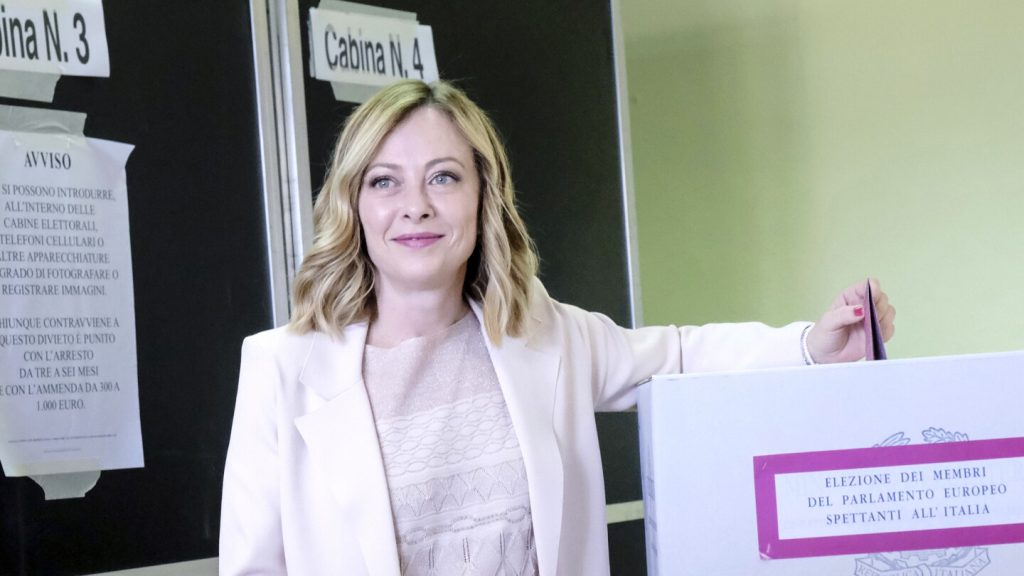Prime Minister Giorgia Meloni of Italy joined voters in Italy and six other European Union nations in casting a ballot during the European Union parliamentary elections. Meloni, a hard-right politician, challenged the traditional center parties, stating that their time to run the EU as they pleased was over. Populist and far-right parties aimed to make gains across the 27-member bloc, following Geert Wilders’ strong showing in the Netherlands. Meloni emphasized the importance of the vote, stating that it would determine the next five years and calling for a reduction in the powers of EU institutions dominated by Christian Democrat, Socialist, and pro-business Liberal politicians.
As the third most populous nation in the EU, Italy holds significant influence in the bloc. The country will send 76 legislators to the 720-seat parliament, which has expanded its powers in recent years. The election campaign was marred by incidents of violence, such as the attempted assassination of populist Prime Minister Robert Fico in Slovakia on May 15, and an assault on Prime Minister Mette Fredriksen in Denmark. These events underscored the high stakes of the elections across Europe and raised concerns about political stability and security.
In Slovakia, the assassination attempt on Prime Minister Fico could potentially boost his leftist Smer party’s chances of winning the elections. Fico, known for his pro-Russian and anti-American platform, has faced criticism for his policies, including his opposition to supporting Ukraine in its conflict with Russia. The campaign period has been marked by tension between center and left-wing forces seeking to prevent a surge of far-right parties, including those led by figures like Fico, Hungarian Prime Minister Viktor Orbán, and Italian Prime Minister Meloni, who advocate for greater autonomy for member states within the EU.
EU Commission President Ursula von der Leyen has emphasized the importance of upholding the rule of law as a key requirement for those seeking power within the EU. Meloni is expected to emerge as a significant winner in Italy, reflecting the growth of her far-right Brothers of Italy party. Her success could increase her influence within the EU and potentially lead to a coalition with von der Leyen’s group. While the main voting day is Sunday, some countries like Latvia, Malta, and the Czech Republic held their elections on Saturday, with final results expected to be released after all countries have voted.
In Slovakia, Fico’s Smer party faces tough competition from the main opposition Progressive Slovakia party, a pro-Western liberal faction. Fico’s government has faced criticism for attempts to control public broadcasting and amend the penal code, leading to concerns about potential autocratic tendencies similar to those seen in neighboring Hungary under Viktor Orbán. The outcome of the elections in various EU countries will shape the future direction of the bloc and determine the balance of power between center, left, and far-right political forces.


